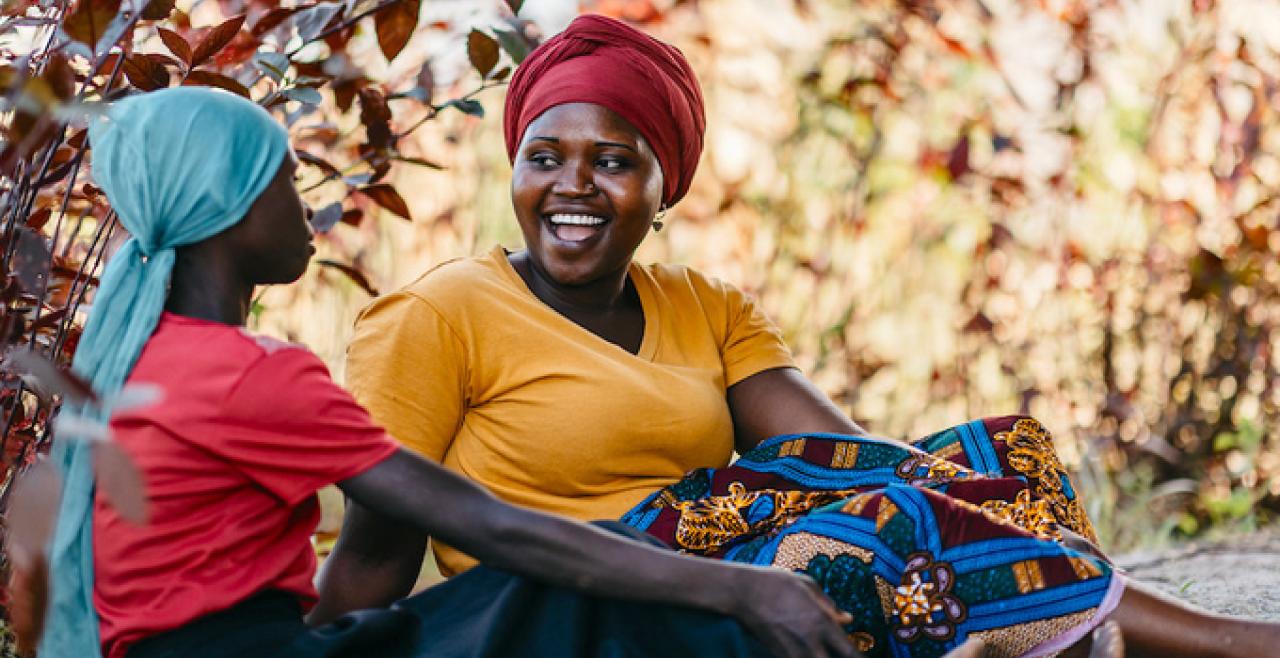Spotlight Initiative celebrates progress in creating a violence-free future for African women and girls

ADDIS ABABA, Ethiopia, 13 June 2023 – Significant strides have been made to reduce violence against women and girls, sexual and gender-based violence and harmful practices, and to strengthen sexual and reproductive health and rights in Africa. Despite ongoing challenges, systemic changes initiated by the Spotlight Initiative in Africa hold tremendous potential for creating a future free from violence for women on the continent.
The advancements made so far in policy development, evidence generation and civil society strengthening deserve acknowledgement and can translate to tangible improvements in women and girls’ lives on the continent. It is important to sustain these gains and continue the momentum, European Union Ambassador to the AUC Birgitte Markussen said at a recent meeting of the Spotlight Initiative’s Africa Steering Committee.
The engagement and commitment of all partners on the Initiative have been instrumental in accelerating implementation and achieving an impressive 80 per cent programme delivery rate.
Representatives of the African Union, European Union, United Nations agencies, civil society, and African member states reaffirmed their commitment at the meeting to sustain progress and strengthen collaborative efforts on these critical areas.
Using innovation to counter violence
The Spotlight Initiative has used innovative strategies to fight violence against women in Africa, and these have shown considerable success. The Initiative has also developed legal and policy frameworks, built strategic partnerships, employed the use of data, and built capacity in this respect.
Notable milestones achieved by the initiative include developing the African Union's Regional Action Plan (RAP) and Harmful Practices Accountability Framework. The programme has also mobilized regional partners, the African Union Commission, and civil society organizations to support high-level advocacy missions in ten countries. These promoted the ratification, domestication and enforcement of the Maputo Protocol, and advanced the implementation of regional initiatives to address harmful practices.
In addition, the Spotlight Initiative has strengthened the capacity of 121 regional and national partners with skills to collect, analyze and use data related to sexual and gender-based violence, child marriage and female genital mutilation. By adhering to international and regional standards, this data is used to inform the development of laws, policies and programmes aimed at combating these issues effectively.
Success despite challenges
Ambassador Minata Samate Cessouma, the African Union Commissioner for Health, Humanitarian Affairs and Social Development, stressed the importance of implementing these policies effectively across the continent. She noted significant progress despite challenges, such as conflict in Sudan and the Sahel, and setbacks due to the COVID-19 pandemic. The impact of climate change on women needs to be addressed, such as the floods in Malawi, she added.
Yacoub El-Hillo, Regional Director for Africa of the UN Development Coordination Office, commended the 80 per cent implementation rate and expressed his commitment to ensuring the sustainability of the project's impact at country and regional levels.
John Ede, representing civil society, emphasized the importance of the role of civil society in driving change. Key milestones have been achieved by the Civil Society Regional Reference Group (CSRRG) since its inception in February last year, he said. He urged the implementing agencies to prioritize working with grassroots CSOs, NGOs, and frontline actors, whose voices are often unheard and rarely are represented in high-level spaces.
The Spotlight Initiative is a global, multi-year partnership between the European Union and the United Nations to eliminate violence against women and girls by 2030. As the programme nears its end, the partners involved acknowledged the good progress made, but stressed the need for continued commitment to ensure a violence-free future for African women and girls.
Originally published on UNFPA ESARO.
